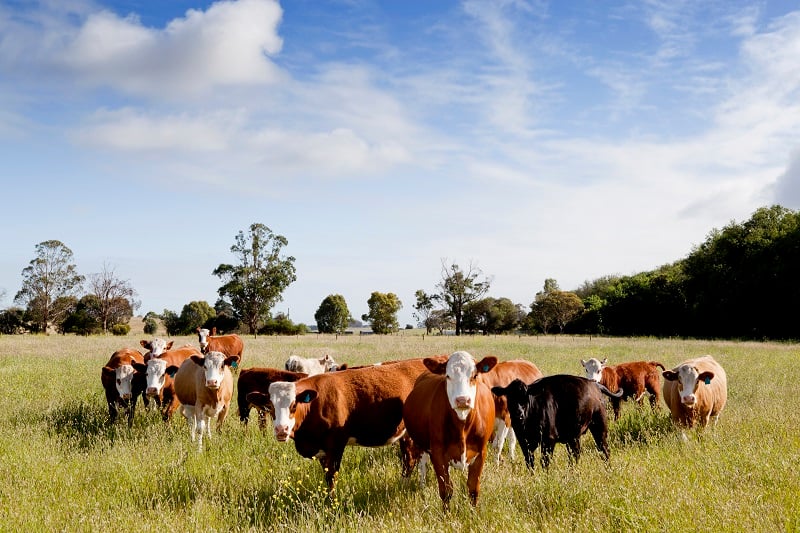
We explain what this reclassification means for investors using the net zero investment framework (NZIF) - the most widely used net zero framework for investors - to develop net zero targets and transition plans.
In October 2023 the Agriculture, Forestry and Fisheries (AFF) sector was reclassified as ‘high impact’ under NZIF, joining other high impact industries chosen because of the substantial greenhouse gas emissions created during their operations, or when their product is used. Examples of other high impact sectors include mining and oil and gas.
The criteria for a high impact company to be considered ‘aligned’ under the alignment maturity scale as outlined in NZIF - or on track to hit their net zero targets - is more stringent than for those in lower impact sectors. Most notably, high impact companies must possess a well-defined decarbonisation plan and allocate capital in accordance with it. Agriculture, forestry and fisheries companies will now also have to satisfy this additional alignment criteria.
The reclassification of the AFF sector will not affect net zero targets, but it will influence the actions that investors take to achieve their targets.
Dr Adrian Fenton, IIGCC’s Senior Investor Strategies Programme Manager, said: ‘The reclassification of the AFF sector as high impact will require investors who want to achieve their net zero targets to intensify their engagement with portfolio companies associated with the sector.’
Land and Sea
According to the Intergovernmental Panel on Climate Change (IPCC), emissions linked to 'Agriculture, Forestry, and other Land Use' account for approximately a quarter of anthropogenic global greenhouse gas emissions – those caused by human activity.
This occurs mainly through tropical forest deforestation, with agriculture accounting for between 10 and 12% of global emissions from 2000 and 2010, according to the IPCC. Land use and land use change accounted for a further 9 to 11%. Importantly, many of the suggested options for mitigating emissions also come from this space, perhaps most significantly through avoided deforestation.
In the water, fisheries contribute significantly to global carbon emissions. Fishing boats that trawl the ocean floor release ‘as much carbon dioxide as the entire aviation sector’, according to one study from 2021. Destroying marine ecosystems not only decreases the capacity of oceans to absorb carbon, it also releases carbon stored in marine organic matter. Shrimp farms leading to mangrove deforestation is another concerning trend as mangroves offering a vital carbon-storing or sequestration opportunity.
Protect carbon stocks
While NZIF mainly focuses on the greenhouse gas emissions associated with the AFF sector, experts increasingly recognise that to effectively reduce these emissions, biodiversity and local livelihoods must also be supported.
‘Biodiverse ecosystems tend to absorb more carbon and are more resilient to impacts such as droughts, fires, and extreme weather events’, explained Norah Berk, IIGCC’s Senior Programme Manager for Nature: ‘With climate change increasing the frequency and severity of disturbances, supporting biodiverse ecosystems is crucial to protect carbon stocks and maintain the carbon absorption capabilities of ecosystems.’
One way investors can engage with companies in the sector is through Nature Action 100, a new global investor engagement initiative launched and co-led by IIGCC which aims to drive greater corporate ambition and action to reverse nature and biodiversity loss. More than 200 investors representing $25 trillion in assets have signed on to engage with a list of 100 focus companies as part of the initiative.
Over a third of the Nature Action 100 companies are within the AFF sector and many of the remaining companies depend on this sector for major inputs into their products, offering investors an opportunity to engage proactively with the sector to deliver real world emissions reductions.
Participating investors called on companies to complete six key actions, which if achieved, should help lower nature loss and associated greenhouse gas emissions.
The reclassification of Agriculture, Forestry, and Fisheries as a high impact sector within NZIF will encourage investors to redirect their attention towards the transition risks associated with Agriculture, Forestry and Other Land Use. To address such risks, increased engagement with companies to scale practices that foster resilient ecosystems and sustainable livelihoods will be required. The hope is that initiatives like Nature Action 100 can support this requirement.
If you’d like to find out more about the net zero investment framework and be the first to see insights and analysis, why not speak to our investor relations manager today to find out more about becoming a part of IIGCC.